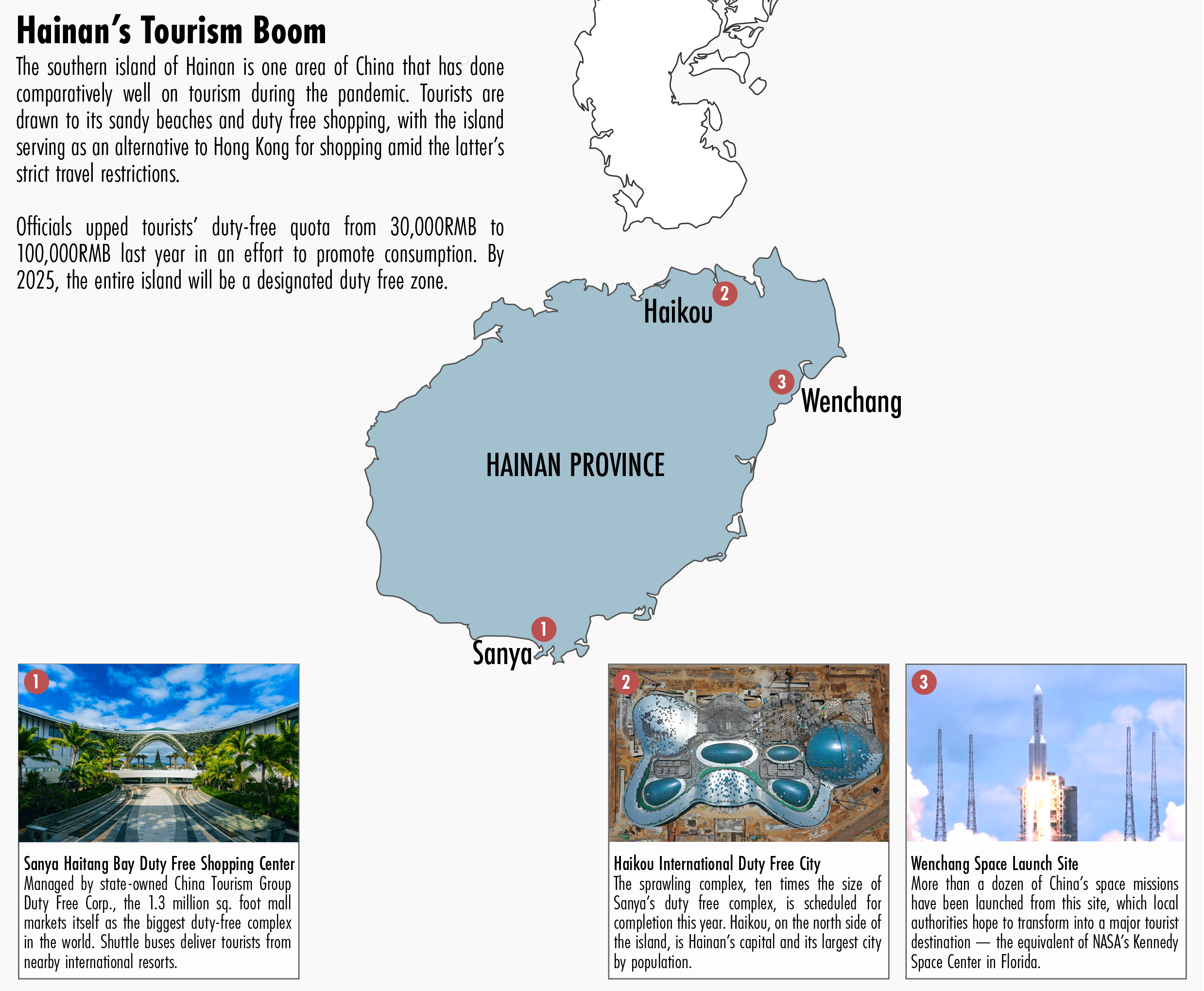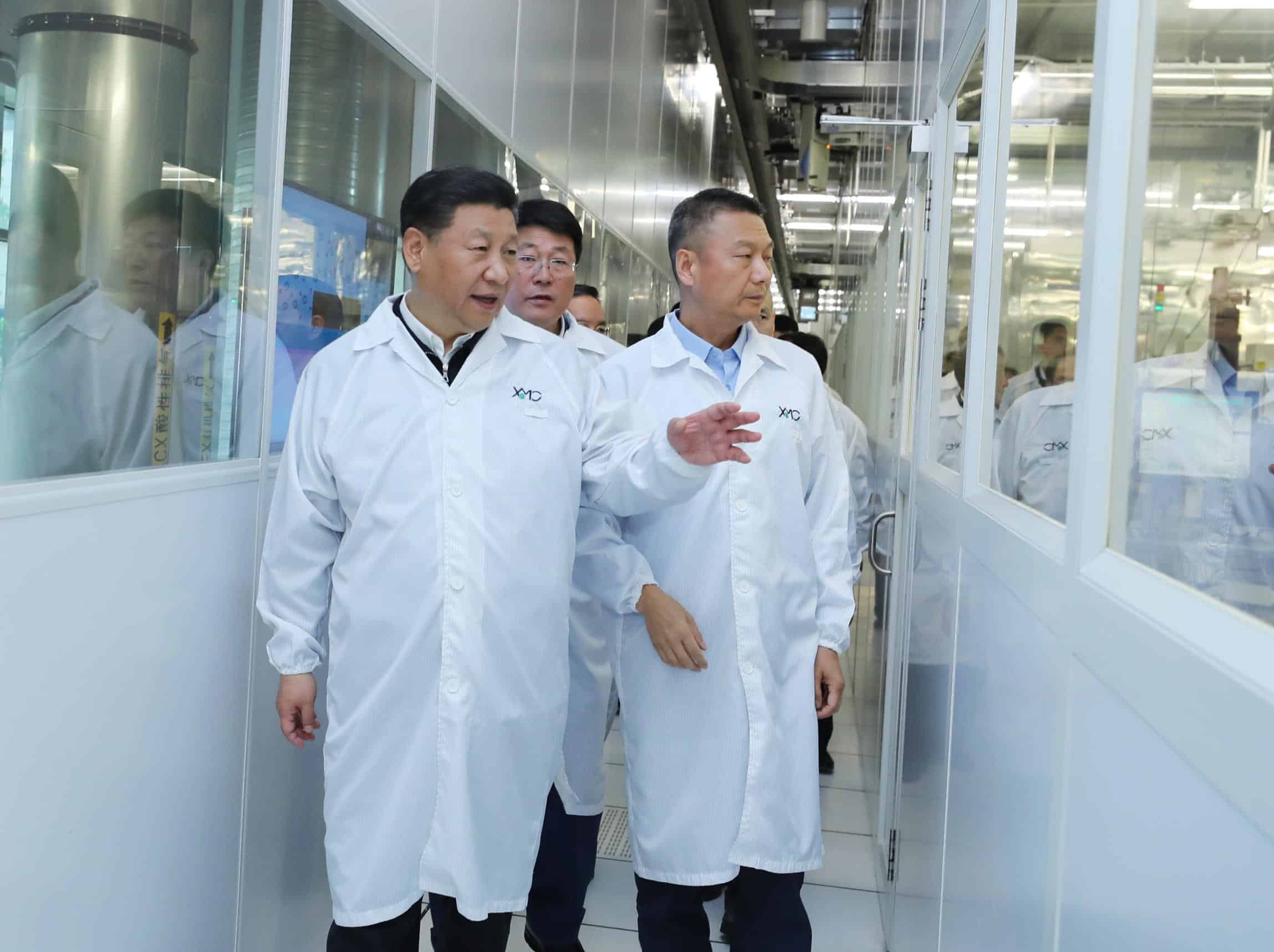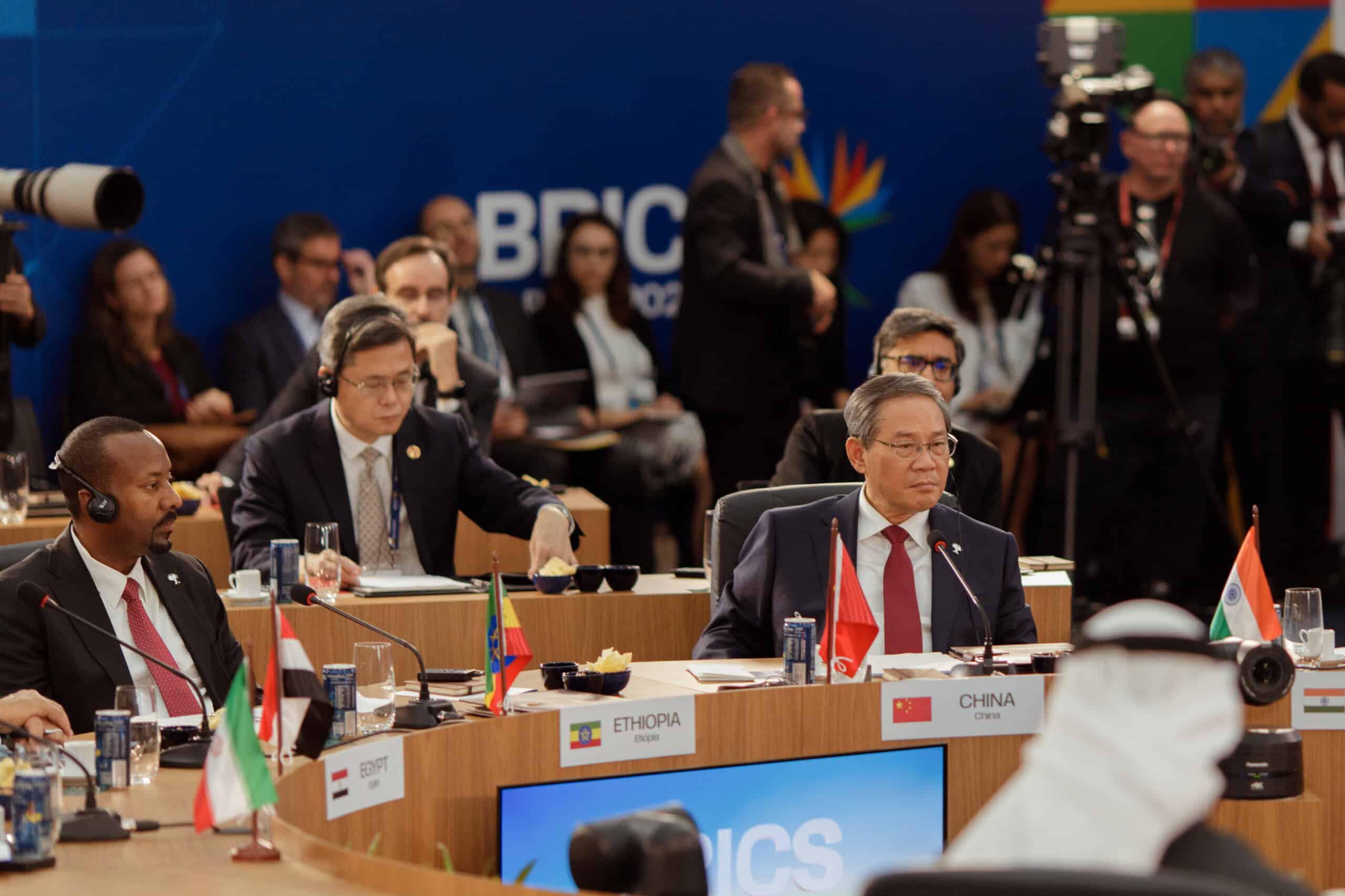Good evening. China banned cryptocurrencies, but it’s all in on blockchain. This week, our cover story follows the man behind China’s version of ‘Web3’ — the state-backed, blockchain-powered internet revolution. Elsewhere, we have infographics on China’s domestic tourism industry, which (as you might expect) isn’t doing too hot; an interview with Sebastian Mallaby on the evolution of venture capital in China; a reported piece on one of America’s biggest renewable energy projects — and why China is still at the center of it; and an op-ed about the high costs of disengagement for China. If you’re not already a paid subscriber to The Wire, please sign up here.
Want this emailed directly to your inbox? Sign up to receive our free newsletter.

New Kid on the Block
Thanks to He Yifan, China is pioneering its own state-backed version of Web3, internet infrastructure that runs on blockchain. But as Chang Che reports in this week’s cover story, now that He’s network is ready to go international, many are wondering how the West will react to a Chinese-made internet.

The Big Picture: China’s Tourism Tumble
Airports in Europe and North America are buckling under the weight of the summer holiday surge. Meanwhile, China’s long-suffering tourism industry continues to struggle to keep the lights on, having never recovered since the start of the pandemic. This week, our infographics by Eliot Chen look at the state of China’s tourism industry: why it’s struggled during the pandemic and the questionable hopes for its recovery.
A Q&A with Sebastian Mallaby

Sebastian Mallaby is a senior fellow at the Council on Foreign Relations and an experienced financial journalist. He is the author of five books, most recently The Power Law: Venture Capital and the Making of the New Future. In this week’s Q&A with Dan Xin Huang, he talks about the evolution of American venture capital in China — from its role in the rise of Alibaba to the split today over China’s politics.
Sebastian Mallaby
Illustration by Lauren Crow

Powering Utah, with China’s Help
In Utah, two companies are planning one of the world’s largest renewable energy storage hubs, with $504 million in backing from the U.S. Department of Energy. But a vital input at the center of the clean hydrogen project will be shipped in from Tianjin, China — demonstrating, as Isabella Borshoff reports this week, the challenges of decoupling from China in the clean energy space.

The High Costs of Disengagement for China
In this new era of strategic competition between China and the West, disengagement is the order of the day. But as George Magnus argues in this week’s op-ed, while this trend will impede economic growth, increase business costs, and raise prices for everyone, the economy that loses the most may well be China’s.
Subscribe today for unlimited access, starting at only $19 a month.



